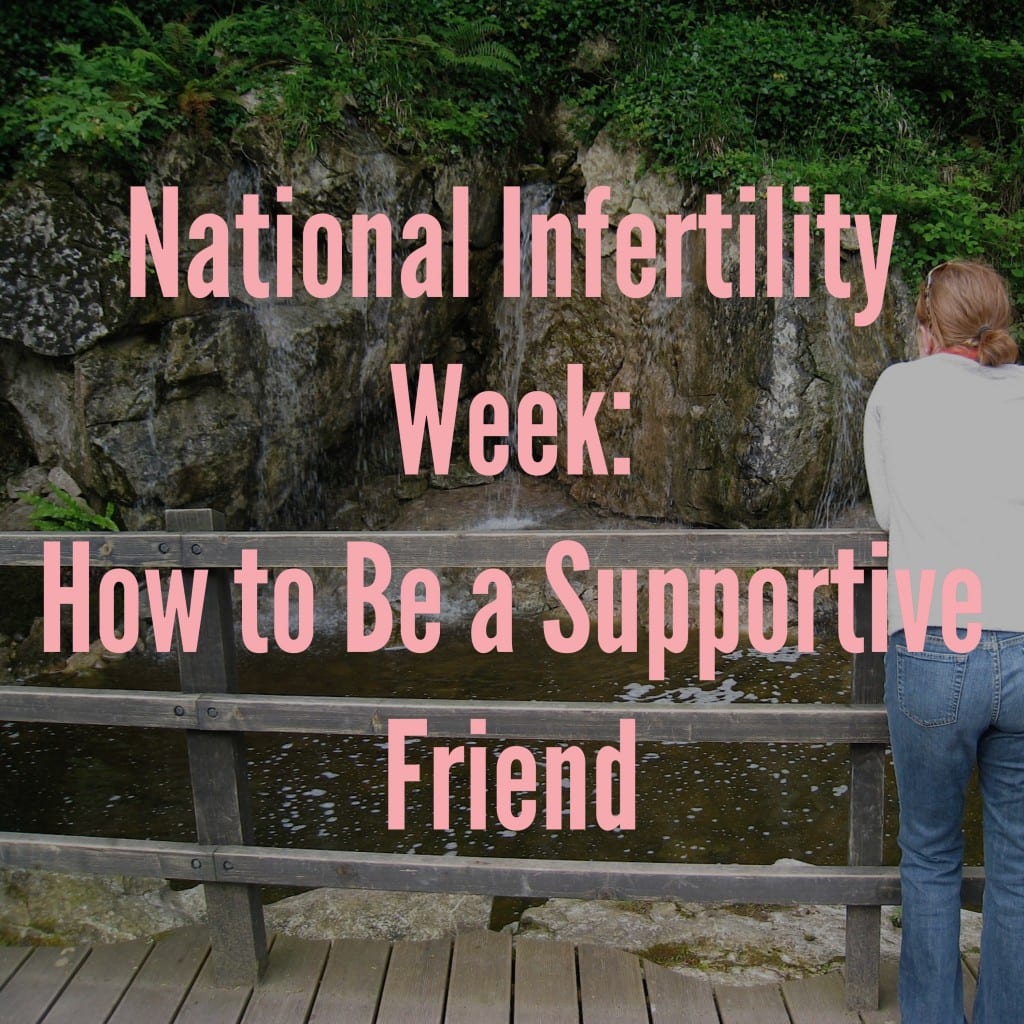For the many of you who are reading this blog series (here is Part 1 and Part 2) who have never struggled with fertility, chances are that you know someone who is. Infertility affects between 10% and 15% of couples trying to conceive. You likely have a friend or a relative who is currently dealing with this issue. Knowing the right things to do or say can be tricky because you don’t want to walk on eggshells, but you don’t want to be hurtful either.
Based on my experiences, here are a few suggestions for what to say and what not to say.
Things you should try to avoid saying or doing:
- Don’t tell her to “just relax”. This was one of the most common and painful things for me to hear throughout my pregnancy. First of all, you don’t know whether or not she is relaxed. Secondly, telling her to relax is implying that she holds some blame in the fact that she cannot conceive. Essentially you are telling her that, “If you weren’t such a tense, stressed-out woman, you probably would have conceived ages ago.” Furthermore (and more importantly), infertility is a medical problem, not a mental one. There is significant research that shows that stress does not directly cause infertility; however, it is clear that infertility causes stress. Instead of telling your friend not to stress, I would suggest that you help her not to stress. Invite her out for a cup of coffee, take her to get her nails done, or offer to cook for her during a time of fertility treatments.
- Don’t tell her that she “could always just adopt”. Most likely, your friend or loved one has already considered or is considering adoption. Adoption is an amazing option for expanding one’s family, but it not always the best choice for everyone. Additionally, adoption doesn’t replace someone’s desire to have a biological child. A couple needs to arrive at this option through a great deal of prayer and thought. Another way to approach this topic would be, “So, what’s the next step for you?”
- Don’t make silly or crude remarks. I once had someone ask me, “Hey, you know how it’s done, right?” Making jokes may make things less uncomfortable for you, but it makes things significantly worse for the person who has to hear them.
- Don’t tell your friend that you are pregnant in a public setting. She may not react well, even if she is extremely happy for you. Telling her privately offers her the opportunity to be sad for a second if she needs to be. A phone call is a great choice if you are a close friend; otherwise, email is completely appropriate.
- Don’t belittle her problem. I understand that people mean well, but comments such as, “Just be glad you don’t have to deal with fighting children,” or, “At least you get to sleep through the night” are quite hurtful to someone who desperately wants children. She knows that children are not always easy; she has likely been to restaurants or family gatherings when children lose complete control. She is aware of the ups and downs of having children. This doesn’t change her gripping desire to have them.
- Don’t complain about your pregnancy. I’ve heard this compared to a wealthy person complaining about how much money they spent to a friend who has only known poverty. Remember that your friend would give anything to feel round ligament pain or be exhausted from pregnancy.
- Don’t only hang out with your friends who also have children. Keep your friend involved in your life as much as possible. If she doesn’t want to attend something because there are only families with children around, let that be her choice. Always invite her.
- Don’t take things personally. If your friend chooses to not come to your baby shower or your son’s first birthday, please understand that it has very little to do with you. Your friend is thinking of you and your child, and she will still likely send an amazing gift.
Things you can do and say to encourage your friend or loved one:
- If you are trying to conceive, keep her in the loop. Let her know that you are trying to get pregnant, and ask her how she would like to find out if you do get pregnant. Would she prefer an email or text, or would she rather you tell her alone and in person?
- Ask her about how she is doing, and be prepared for the response you may get. It takes a very good friend to listen to you while you cry. I personally had a handful of friends who would stop everything to sit with me, crying with me. This doesn’t require that you give advice or suggestions. All that is required is that you listen…and she probably really wants someone to talk to.
- Think of her on Mother’s Day and Christmas. Give her a call, send a text, or squeeze her hand in church. These days are extremely painful for most infertile women, and your support and encouragement can mean the world to her.
- Support her journey. While Kenny and I were trying to conceive, we spent nearly $15,000 on fertility treatments (and this did not even include IVF). Furthermore, we spent months praying about every decision that we made, constantly wondering if we were making the right choices. Perusing fertility treatments causes great financial strain on couples, and it also forces couples to face ethical decisions. Couples in this situation don’t come to any decision lightly, and they could really use your support in it. If you don’t agree with the amount of money that they are spending, or if you wish that they wouldn’t give up quite yet, please keep those concerns to yourself. Trust me, they have struggled to come to their decisions.
- Make small gestures. Once, when an acquaintance was sharing her excitement about her pregnancy to a group of women, a friend of mine grabbed my arm and squeezed it. This truly meant the world to me. She actually did things like this on a few occasions, and I will forever treasure her for it.
- Ask about her marriage. Infertility causes significant strain on a marriage. Pray for your friend and her husband, as this journey is surely taking a toll on them.
Finally, if you are reading this, and you are the friend struggling with infertility, try to cut your friends and family some slack. They are trying. Remember that these people love you and only want to see you happy.
For more on infertility, Read part 4 here.



















